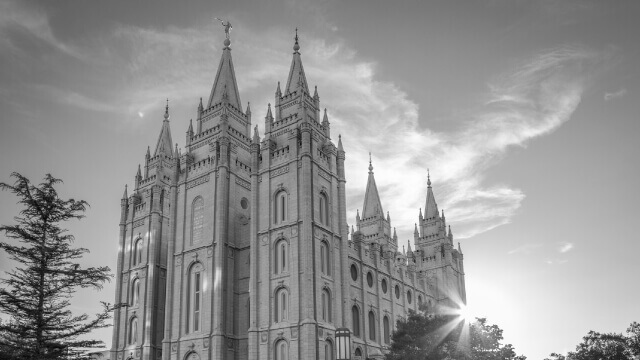
In a Washington Post opinion piece about social mobility in the United States, columnist Fareed Zakaria says “cities with strong families, civic support groups and a community-service orientation do well on social and economic mobility.” He notes that this is “why Salt Lake City — dominated by Mormons — has mobility levels that compare with” countries in northern Europe that “do better at moving poor people up the ladder than the United States does." Salt Lake City may not be “dominated” by Mormons, but the Latter-day Saints there consider it a religious duty to help their neighbors.
Zakaria calls this fabric of community relationships “social capital,” and it’s one of the values that The Church of Jesus Christ of Latter-day Saints lives by. What’s more, this same “social capital” is greatly boosted by religion. Several commentaries on MormonNewsroom.org explain how Mormon faith and practice help create strong families and robust communities. But it’s not only Mormons. All people of faith nurture social capital in their efforts to make the world a better place.
Mormon Newsroom’s most recent commentary about the relevance of religion points out that religious observance strengthens communities.
The value of religion speaks less through sermons and more through the soup kitchens, hospitals, schools and countless other humanitarian works it nurtures. Simply put, religion builds social capital. Research shows that more than 90 percent of those who attend weekly worship services donate to charity. … Religious observance is linked to higher civic involvement, connected to trust and correlated with the neighborly virtues of charitable giving, volunteerism and altruism. Churches of all kinds bring communities together and provide a space and setting for individuals to serve people they otherwise would not. According to Rabbi [Jonathan] Sacks, religion “remains the most powerful community builder the world has known.”
A commentary about why society needs strong families highlights the importance of individual families in fostering successful communities.
None of us lives in isolation. A report on the state of marriage in America put it this way: “Marriage is not merely a private arrangement; it is also a complex social institution. Marriage fosters small cooperative unions — also known as stable families — that enable children to thrive, shore up communities, and help family members to succeed during good times and to weather the bad times.”
Another commentary notes that Mormonism encourages its members to lift society by thinking of their fellow man first. Importantly, the Church seeks to help all people — not just its members.
Mormons contribute donations to a welfare program that is operated, administered and implemented by rich and poor members alike. Everyone is invested in the system. And you don’t have to be a Mormon to participate. Whether one has fallen ill, lost a breadwinner or can’t find a job, this network of compassion works hard to put people back on their feet. Bad things happen to everyone, near and far. In addition, when disasters strike in places around the world, Mormon volunteers offer a helping hand. And on an ongoing basis, service missionaries partner with local and international charitable organizations to help alleviate poverty, prevent disease and give relief to the disabled.
Additional commentaries that address religion’s vital role in society are listed below.